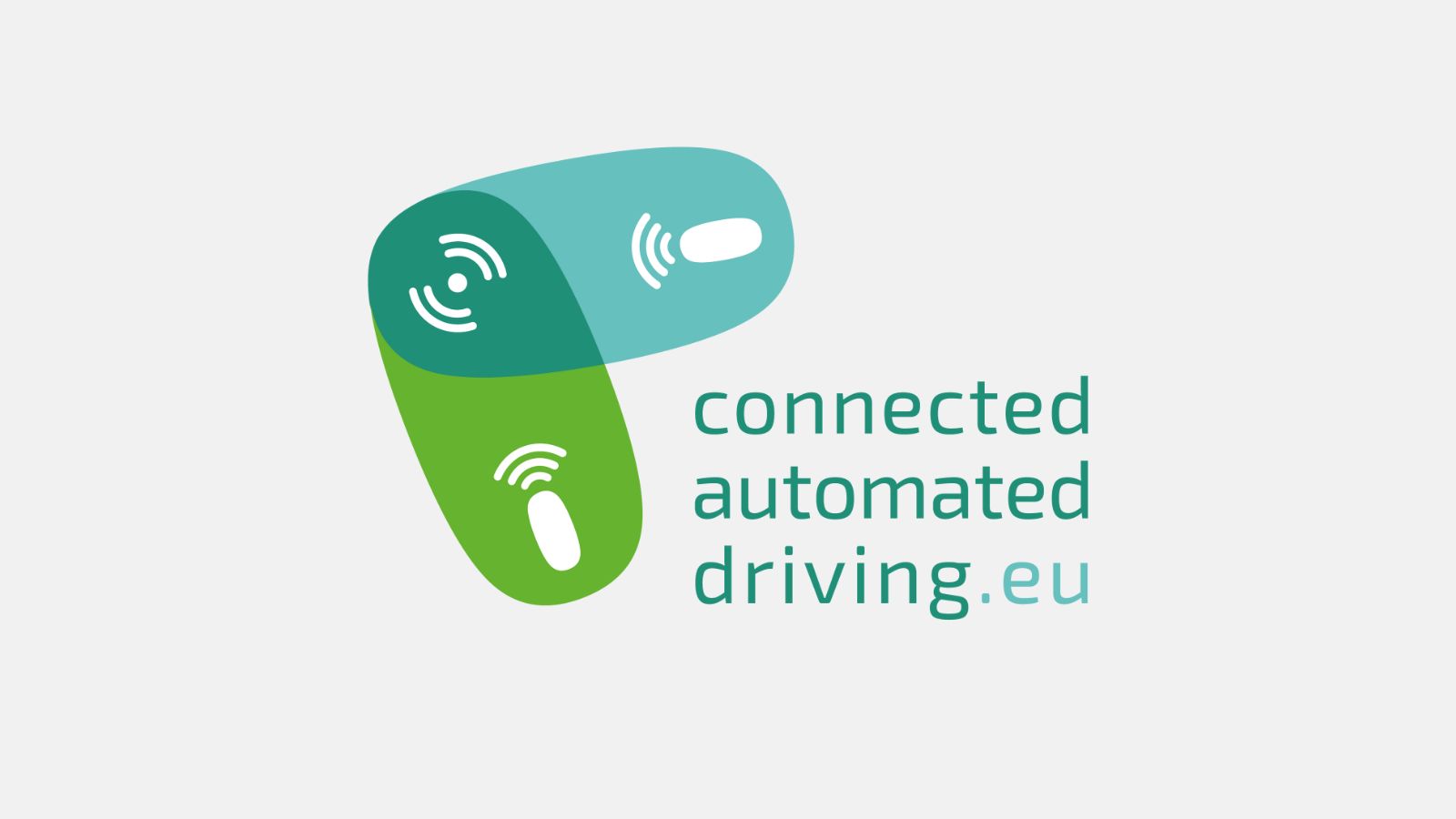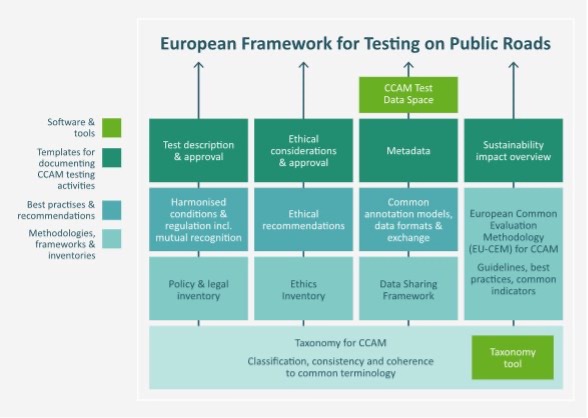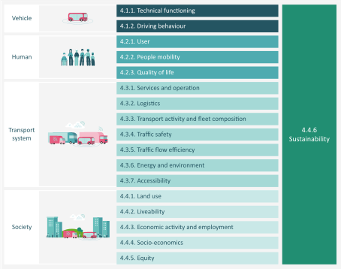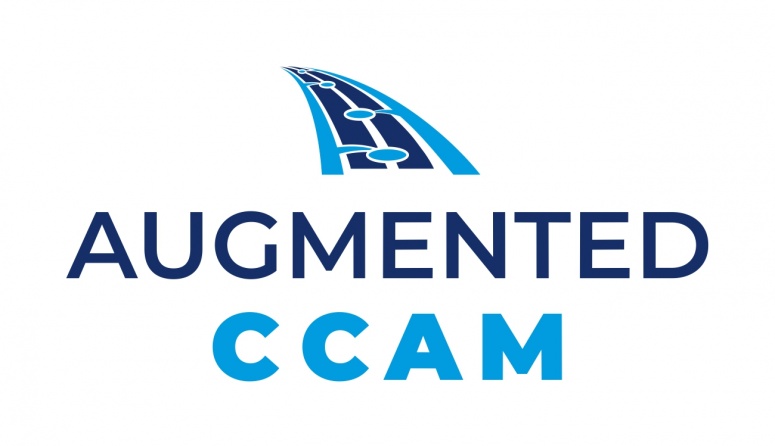FAME project – The CCAM Partnership Coordination and Support Action

The necessity of cross-sector collaboration for the development and deployment of Connected Automated Driving (CAD) across Europe has been evident since the 2016 Declaration of Amsterdam. The 2021 Final Report of the Single Platform for Open Road Testing and Pre-Deployment of Cooperative, Connected, and Automated Mobility (CCAM Platform) of the European Commission also underscored the necessity for a coherent framework for testing on European roads.
To address the Platform’s conclusions and recommendations, a new EU Partnership on CCAM, the CCAM Partnership, was co-programmed under Horizon Europe. Among its objectives are namely to provide a long-term coordination framework for R&I and large-scale testing activities, involving all relevant public and private stakeholders from European, national and regional levels, and the expansion and dissemination of the knowledge base on CCAM solutions.
The FAME project was developed to answer these requirements. Following on previous projects such as FOT-Net, VRA, CARTRE and ARCADE, dedicated to coordination and alignment on future R&I needs for CCAM, FAME aimed to provide a robust framework for large-scale testing and evaluation activities across Europe.
The project, concluded in June 2025, is now followed by CCAMbassador, the new CCAM Partnership Coordination Action that will continue to pursue and expand on FAME’s objectives until 2028.
Have a look at this article to know more about FAME’s results and outputs, paving the way for their further development under CCAMbassador. More detailed information and recordings on FAME’s activities and outputs are available on the page dedicated to its final event, held on 16 June 2025.
FAME Framework for Testing on Public Roads
FAME’s major output is its comprehensive Framework for CCAM testing on public roads. It proposes a harmonised approach to testing that ensures all involved stakeholders can engage efficiently and effectively in the CCAM ecosystem, sharing the same language, methodologies, and tools. The Framework is comprised of different elements, such as a Taxonomy providing a standardised terminology and classification system for CCAM-related terms; the European Common Evaluation Methodology (EU-CEM) to support the comparability and complementarity of evaluation activities; a Data Sharing Framework to better leverage the data generated by projects and testing activities. It also places strong emphasis on regulations, to address how the lack of harmonisation across Member States hampers our ability to test and demonstrate CCAM cross border. It is therefore accompanied by policy recommendations focused on topics such as harmonising legal procedures and approvals, facilitating cross-border testing, promoting ethical testing practices, and encouraging responsible data sharing. The Framework is articulated around four main pillars, each supported by corresponding tools, templates, and best practices:
- Evaluation methodology
- Data handling and management
- Harmonized legislation for test permits and procedures
- Ethical considerations in testing

Figure 1 – FAME Framework for Testing on Public Roads
European Common Evaluation Methodology for CCAM (EU-CEM)
“The desire for a common evaluation methodology stems from the need to be able to compare evaluation results from various tests and projects, allow for complementing evaluations and meta-analysis over multiple evaluation studies and assess impacts of deploying CCAM technologies and systems, including on the systems level.”[1]
A key component of the Framework, the European Common Evaluation Methodology for CCAM (EU-CEM) provides guidance on assessing both direct (and indirect) socio-economic impacts of CCAM. The EU-CEM supports professionals planning and conducting evaluations for CCAM projects, project coordinators and proposal evaluators. Its objective is to ensure high-quality evaluations and reliable evaluation results for decision- and policymakers in both public and private sectors.
CCAM can have impact on different levels: (1) single vehicles, (2) humans, (3) the transport system, and (4) society overall. The EU-CEM covers all four levels of evaluation, totalling 18 evaluation and impact areas.

Figure 2 – EU-CEM impact areas
Data Sharing Framework and Test Data Space
Another element of the Framework, the CCAM Data Sharing Framework (DSF), addresses the many dimensions of data management. FAME DSF builds on the original framework developed in FOT-Net, and is focused on accessibility and interoperability of research and test data from European CCAM projects. The DSF addresses key issues in data management from metadata descriptions to data protection guidelines, IPR, and financial considerations.
The CCAM Test Data Space (TDS) was developed as a prototype to demonstrate the viability of federated data sharing and multi-stakeholder collaboration in the CCAM ecosystem without the need for centralization. The TDS provides connectors for data exchange, a catalogue server for data discovery, an identity hub for secure access management, and a dashboard for user interaction and definition of data use policies and procedures.
Taxonomy for CCAM
A key element in FAME’s effort to support comparability, complementarity, and upscaling of CCAM R&I and testing activities is the inclusion of a taxonomy within the Framework. The CCAM Taxonomy tool, and related glossary, provide a standardised terminology and help clarify relations and interactions between terms across the CCAM landscape, their definition, acronyms, synonyms, and references.
The CCAM Knowledge Base (KB)
The CAD Knowledge Base (KB) serves as an up-to-date, centralised, resource hub for the CCAM ecosystem. On top of being a CCAM-related news & events outlet, it hosts the full range of FAME’s Framework components and other categories of information relevant and related to CCAM R&I: regulations and policies at both EU and international levels; roadmaps and strategic plans from EU institutions, Member States, and industry stakeholders; standards and standardisation bodies; a searchable projects’ database of over 400 national and EU R&I projects, a map of testing and demonstration sites and a summary of lessons learned. Catering to diverse stakeholder groups ─ from policymakers to researchers ─ interested in the impact of automated mobility, the KB is not a static hub and will be further updated and adapted to the needs of its users (and in particular those of specific audience groups such as citizens and implementers) during the course of CCAMbassador and beyond.
Stakeholder Engagement and International Cooperation
FAME placed strong emphasis on stakeholder engagement, as this was key to its mission, namely through (co-)organised events such as the EUCAD symposia and conferences[2]— as well as interactive workshops and webinars.
FAME also supported the EU-Japan and EU-US bilateral cooperation on CCAM, ensuring the representation of European R&I Initiatives in meetings to identify potential synergies with counterpart projects in those regions. Project partners have also explored cooperation opportunities with South Korea, Australia, Canada, UAE, China, Singapore, and Israel and on this basis, issued recommendations for the CCAM Partnership and European Commission for international cooperation in future calls.
Interaction with public authorities
Policy dialogues have been organised resulting in policy briefs with actionable recommendations for national authorities to empower local governments in advancing CCAM testing and enabling successful deployment in cities.
Cooperation with the CCAM Partnership Member States Representative Group (SRG) has ensured a continuous dialogue to exchange information on CCAM R&I at European and national level, as well as coordination and harmonisation needs.
Final Remarks
FAME has laid a critical foundation for harmonising and scaling CCAM activities across Europe. With its transition to CCAMbassador, these resources and tools will continue to evolve, driving forward a coordinated, inclusive, and efficient future mobility.
For more information
https://www.connectedautomateddriving.eu/
info@connectedautomateddriving.eu
https://www.linkedin.com/company/connected-automated-driving-in-europe/
*************
[1] Final Report of the Single Platform for Open Road Testing and Pre-Deployment of Cooperative, Connected and Automated and Autonomous Mobility Platform
[2] Recordings of all sessions and more from the most recent edition, held in May 2025 in Ispra, Italy, at the European Commission’s Joint Research Centre (JRC), are available online on the KB
